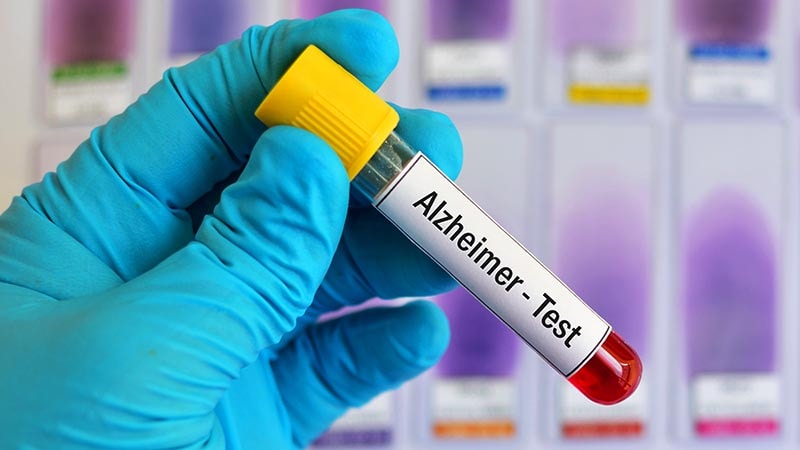Alzheimer's Blood Test to be Available in the UK Within 5 Years
Core Concepts
Efforts are underway in the UK to make a diagnostic Alzheimer's disease blood test widely available within the next 5 years, aiming to address the growing number of undiagnosed cases and long waiting times for diagnosis.
Abstract
The leading Alzheimer's organizations in the UK are collaborating to introduce a diagnostic blood test for Alzheimer's disease within the next 5 years. This initiative aims to address the increasing number of undiagnosed cases and long waiting times for diagnosis. Key highlights include:
Collaboration between Alzheimer's Research UK, Alzheimer's Society, and NIHR.
Current challenges in accessing specialized diagnostic testing.
Importance of early and accurate diagnosis for treatment and research participation.
Changing attitudes towards dementia diagnosis.
Potential of blood tests as an effective diagnostic tool.
Implementation of potential blood tests in the NHS starting in January 2024.
Funding of £5 million for the project from the UK Postcode Dream Fund.
Alzheimer's Blood Test Coming Within 5 Years, UK Pledges
Stats
"Dementia affects around 900,000 people in the UK today, and that number is expected to rise to 1.4 million by 2040."
"Currently, only 2% of people in the UK have access to advanced diagnostic tests like PET scans and lumbar punctures."
"The project will involve working with leading dementia researchers to pilot the implementation of potential blood tests in the NHS."
"The project, which kicks off in January 2024, will receive £5 million ($6.13 million) awarded by the UK Postcode Dream Fund."
Quotes
"Getting an early and accurate diagnosis is the pivotal first step to getting help today and unlocking hope for the future."
"As new treatments for dementia become available there will to be a surge in people seeking a diagnosis."
"In some cases, they are similar in sensitivity to gold-standard PET scans and lumbar punctures, and they're less expensive and potentially more scalable on the NHS."
Key Insights Distilled From
by Megan Brooks at www.medscape.com 11-27-2023
https://www.medscape.com/viewarticle/998770
Deeper Inquiries
How can the implementation of blood tests for Alzheimer's diagnosis impact the overall healthcare system in the UK?
The implementation of blood tests for Alzheimer's diagnosis can have a significant impact on the overall healthcare system in the UK. By providing a less invasive and more accessible diagnostic tool, blood tests can potentially streamline the diagnostic process, leading to earlier detection of Alzheimer's disease. This early detection can result in timely interventions, better management of the disease, and improved patient outcomes. Additionally, the widespread availability of blood tests can reduce the burden on specialized diagnostic services, such as PET scans and lumbar punctures, making the diagnostic process more efficient and cost-effective for the healthcare system.
What are potential drawbacks or limitations of relying on blood tests for dementia diagnosis compared to traditional methods like PET scans?
While blood tests for dementia diagnosis offer several advantages, they also come with potential drawbacks and limitations compared to traditional methods like PET scans. One limitation is the sensitivity and specificity of blood biomarkers, which may not be as high as those of PET scans or lumbar punctures. This could lead to false-positive or false-negative results, impacting the accuracy of the diagnosis. Additionally, the interpretation of blood test results may require further validation and standardization to ensure consistency across different healthcare settings. Moreover, the availability of specialized equipment and expertise for conducting blood tests may vary, potentially affecting the accessibility and reliability of this diagnostic approach.
How can the changing attitudes towards dementia diagnosis influence public health policies and resource allocation in the future?
The changing attitudes towards dementia diagnosis, as evidenced by the increasing willingness of individuals to seek a diagnosis and proactively manage the disease, can influence public health policies and resource allocation in the future. As more people become aware of the benefits of early diagnosis and intervention for dementia, there may be a greater demand for diagnostic services and support programs. This shift in attitude could prompt policymakers to prioritize dementia care, allocate resources for improving diagnostic pathways, and invest in research and development of innovative diagnostic tools, such as blood tests. By aligning public health policies with the evolving attitudes towards dementia diagnosis, healthcare systems can better meet the needs of individuals affected by the disease and enhance overall dementia care delivery.
0
